AITA for failing a student on the last day of class?
Being an instructor means balancing fairness with accountability, but what happens when a chronically unmotivated student faces the consequences of their own choices? OP teaches college students in a clinical setting and has one particular student who consistently submits work late, lacks motivation, and barely meets attendance requirements.
Despite multiple warnings and second chances, the student showed up late and unprepared on the final clinical day, a day that determined whether she would pass or fail. OP sent her home immediately, which meant automatic course failure and a delayed graduation. While it felt justified at the time, OP now wonders—was this too harsh, given that she had previously let her slide for minor tardiness?

‘AITA for failing a student on the last day of class?’

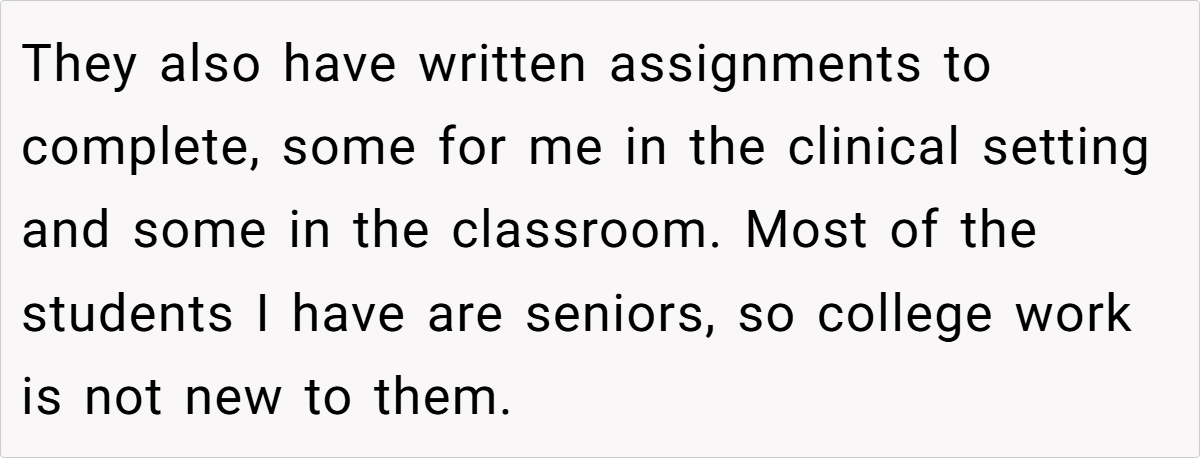
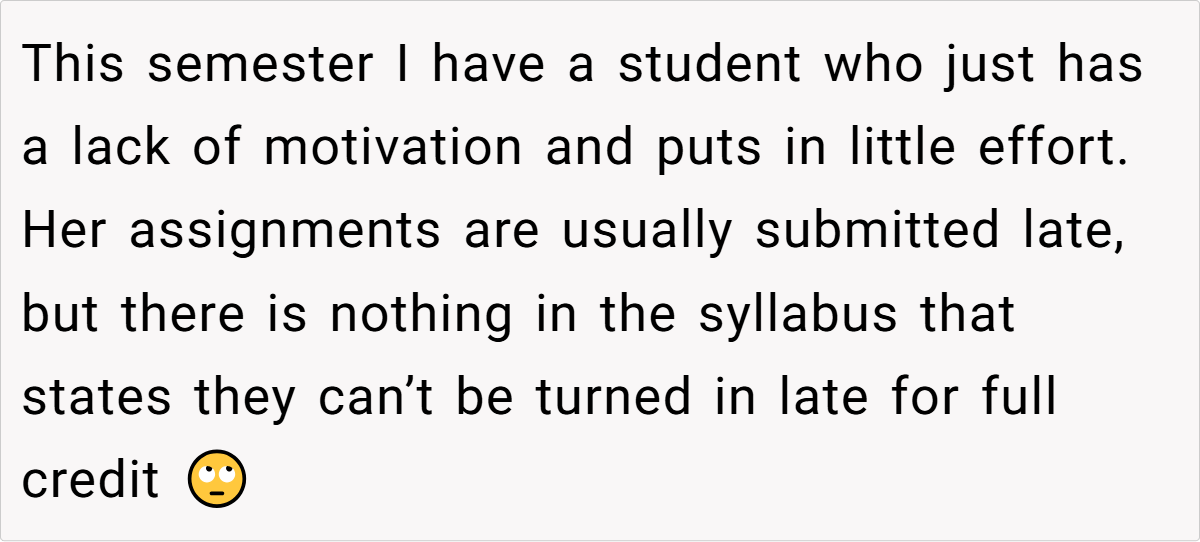
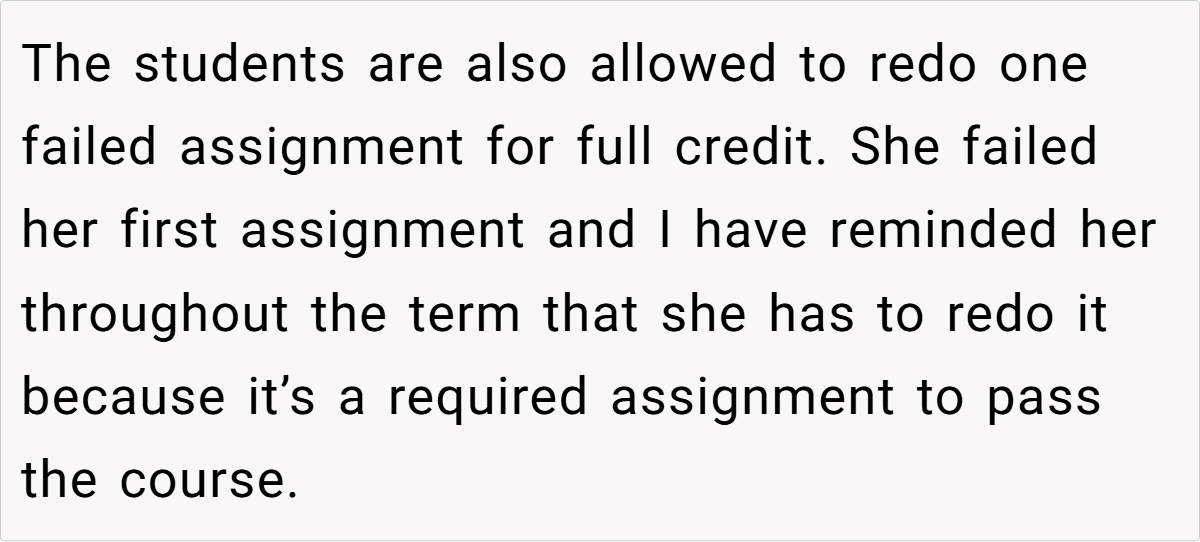
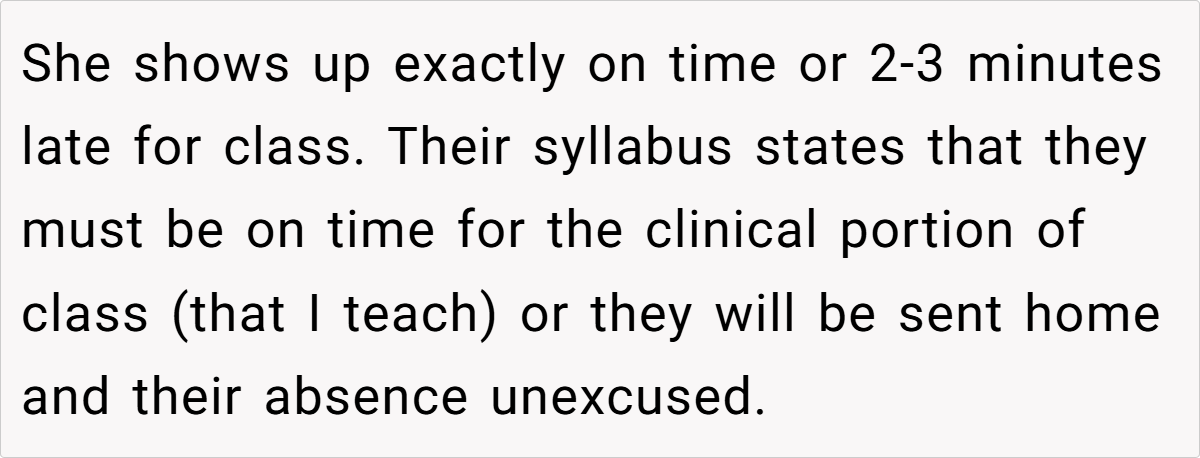
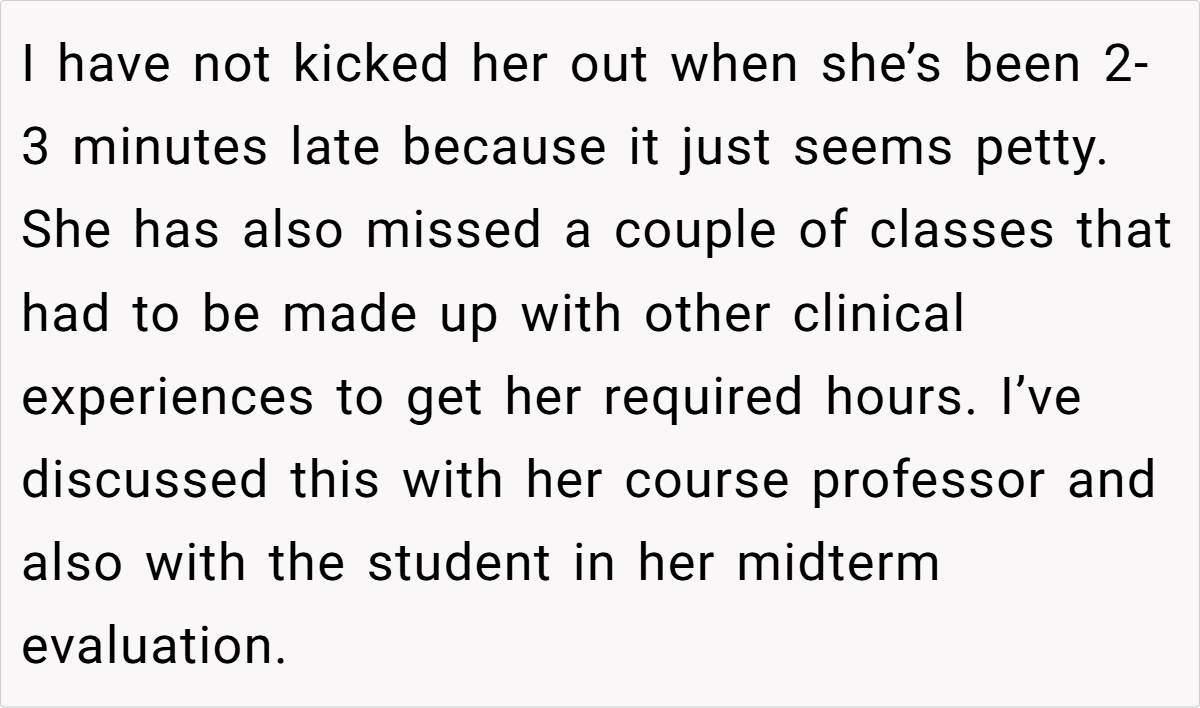

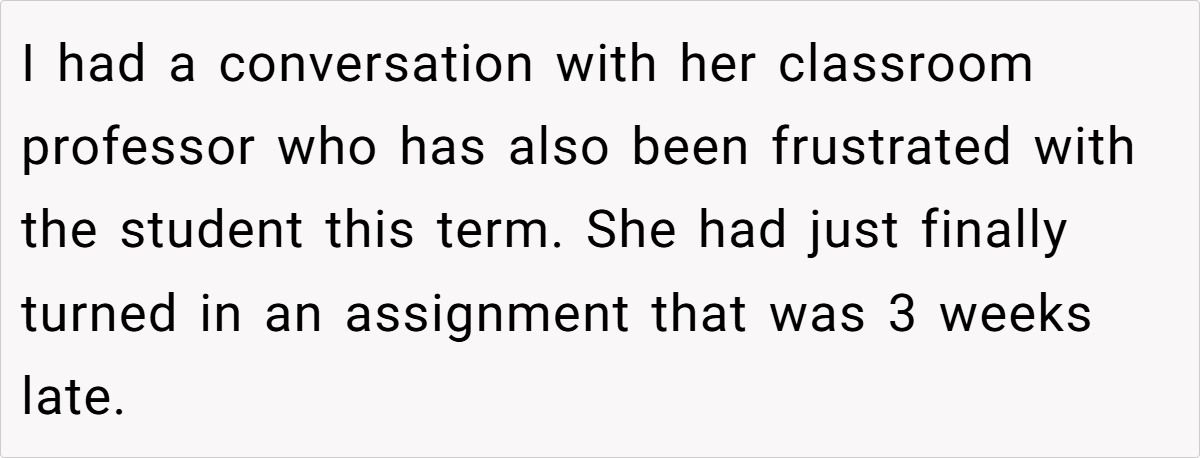
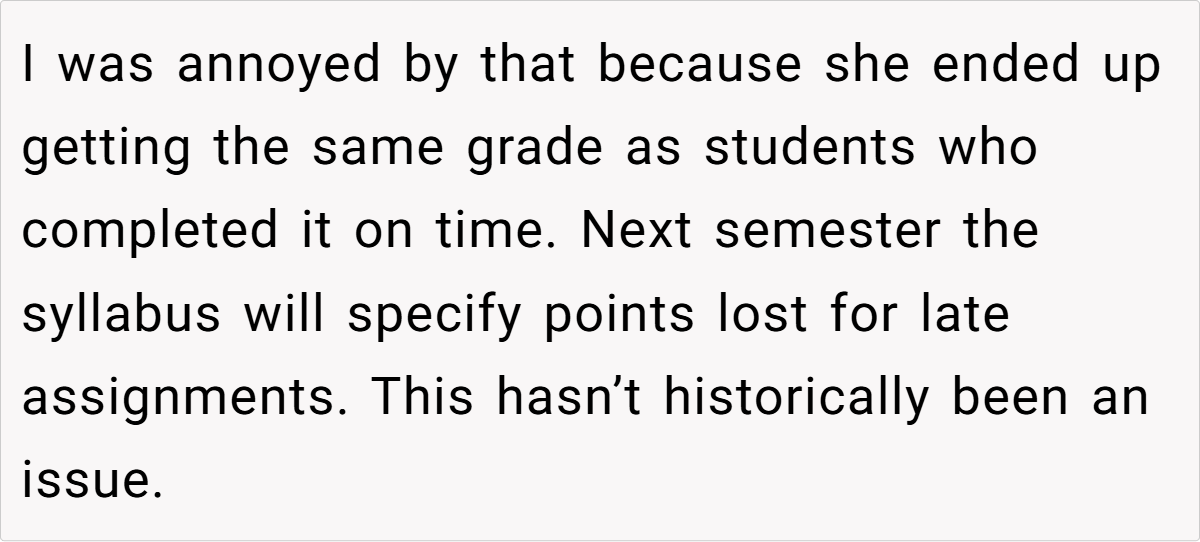
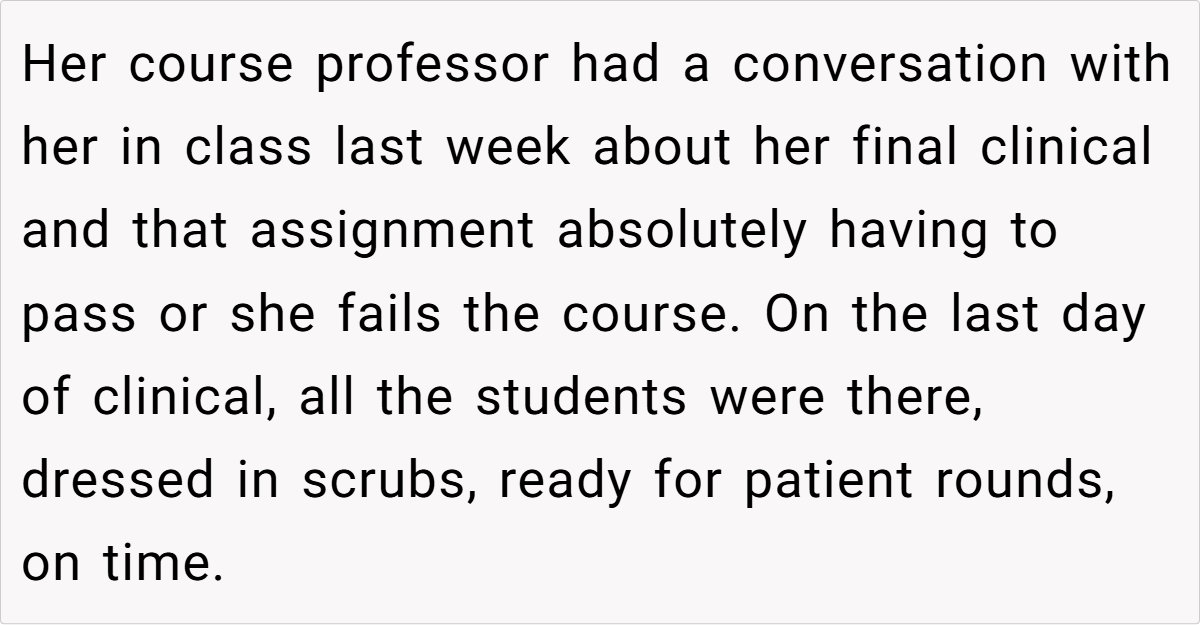

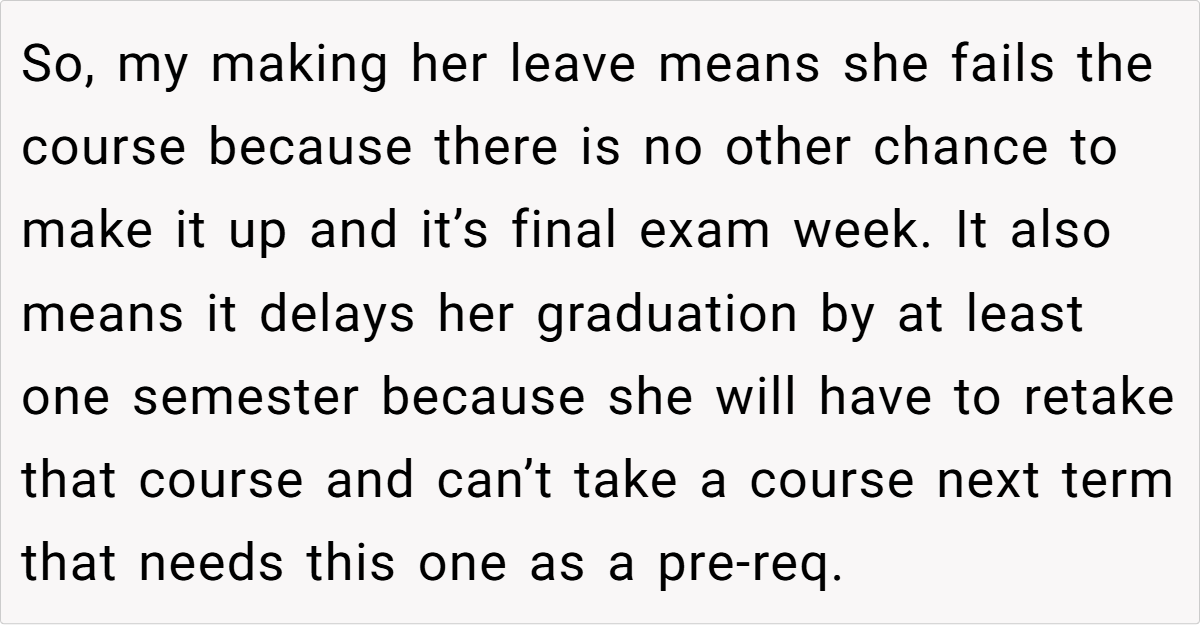

Expert Opinion:
Why Professionalism Matters in Medical Fields
Dr. Atul Gawande, a prominent surgeon and medical professor, emphasizes that punctuality, responsibility, and discipline are non-negotiable in healthcare. A medical professional who fails to meet deadlines or ignores expectations can endanger patients.
In this case, OP wasn’t just enforcing arbitrary rules—she was teaching a critical professional expectation. If this student couldn’t handle basic requirements, how could she be trusted in a real-world medical setting?
The Issue of Consistency in Teaching
Education expert Dr. Maryellen Weimer notes that students respond best to clear, consistently enforced policies. If an instructor allows small infractions all semester but suddenly cracks down at the last moment, it can feel arbitrary and punitive rather than educational.
While OP was absolutely right to enforce professionalism, changing the level of enforcement only at the end of the semester may have caused unnecessary conflict.
Solutions & Lessons Moving Forward
- Strict but Consistent Enforcement: If tardiness is unacceptable, enforce it from day one, rather than waiting until the final exam period.
- Clarify Syllabus Expectations: Next semester, OP should update the syllabus to include clear penalties for late work and tardiness to avoid ambiguity.
- Early Intervention for Struggling Students: Instead of waiting for repeated failures, instructors should address performance issues earlier and provide structured improvement plans.
- Use This as a Learning Moment: If the student appeals her grade, OP could offer a reflection assignment—forcing her to acknowledge how her choices led to failure, rather than making her feel unfairly punished.
Here’s what Redditors had to say:
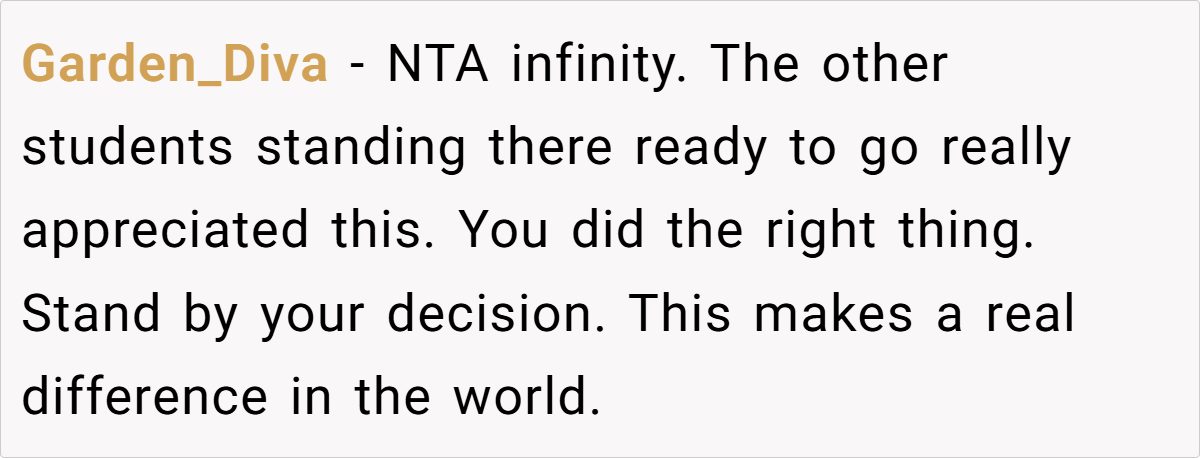
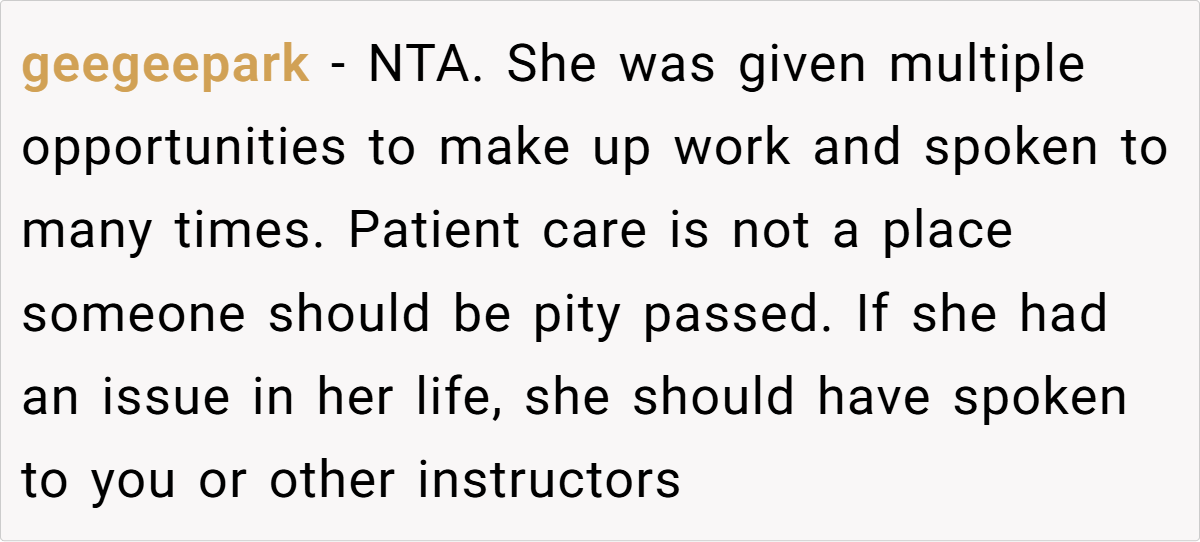

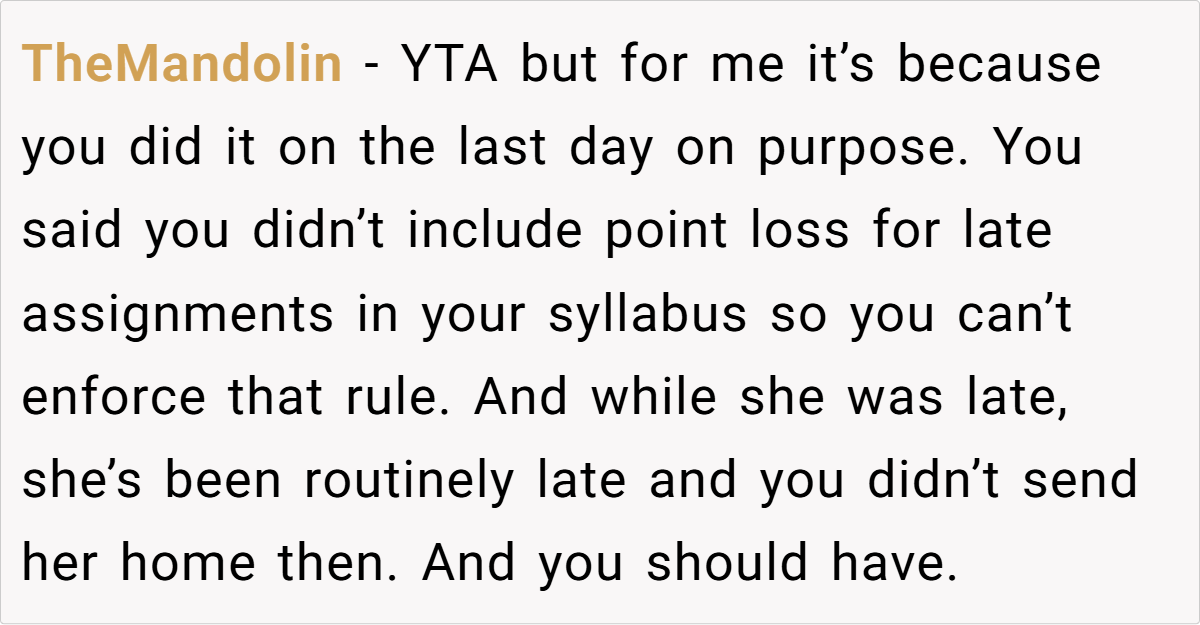
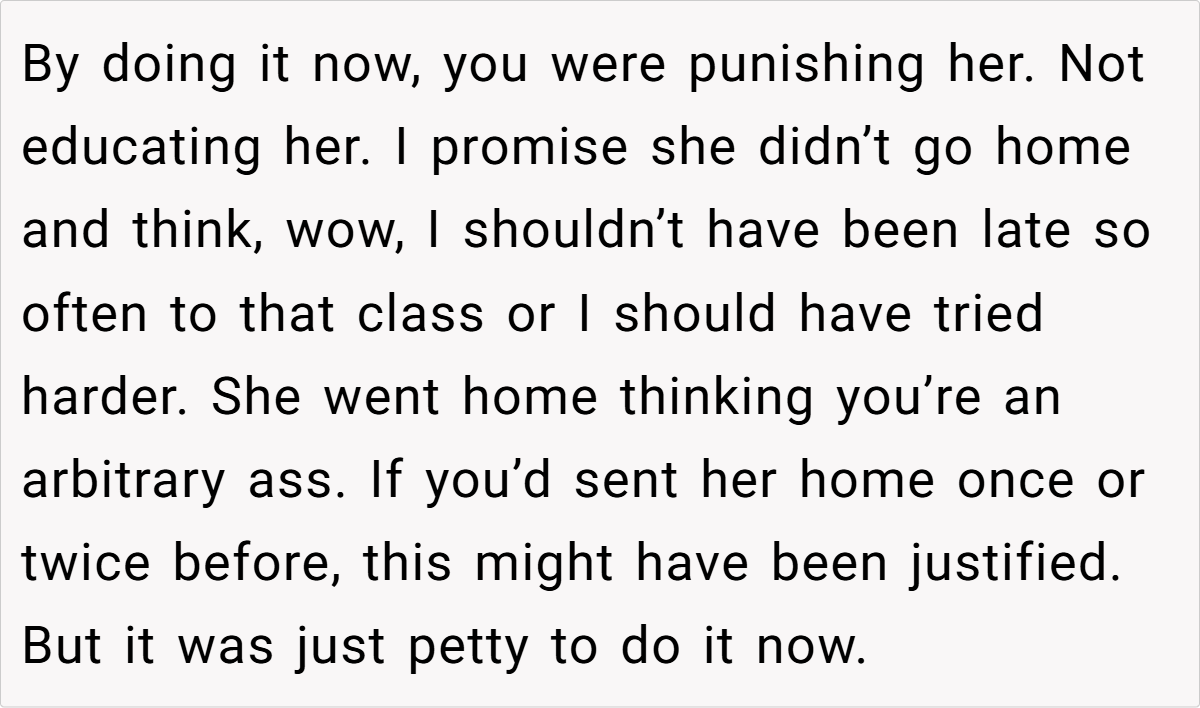
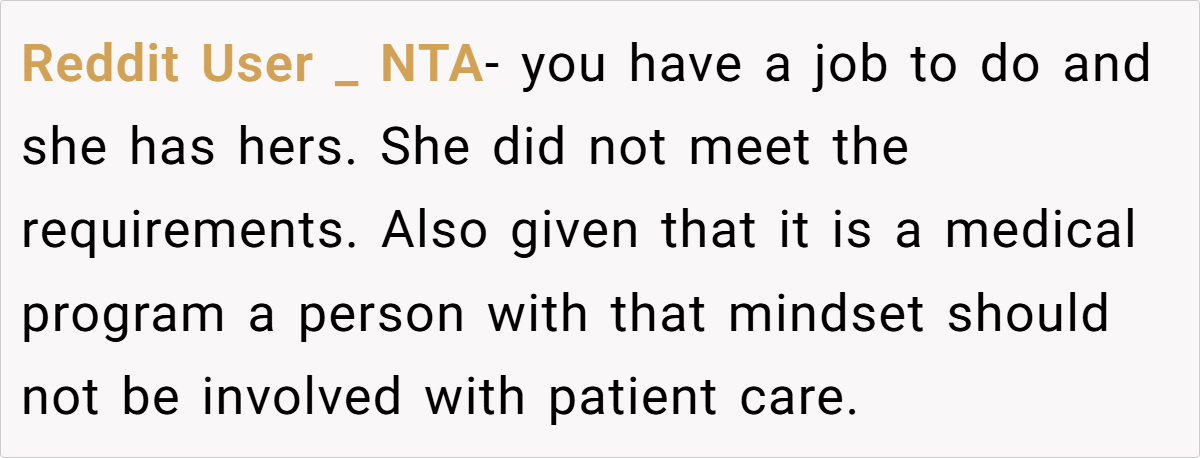
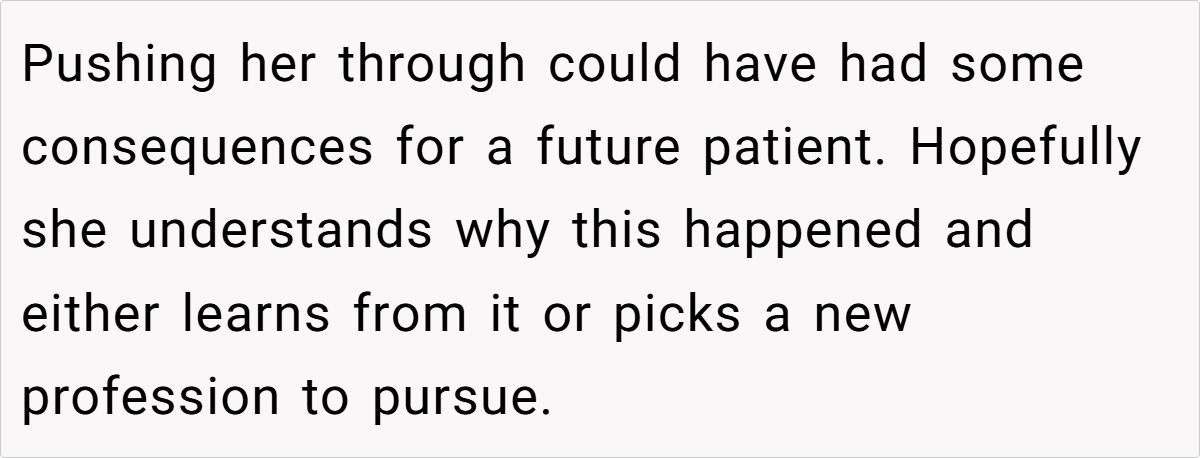
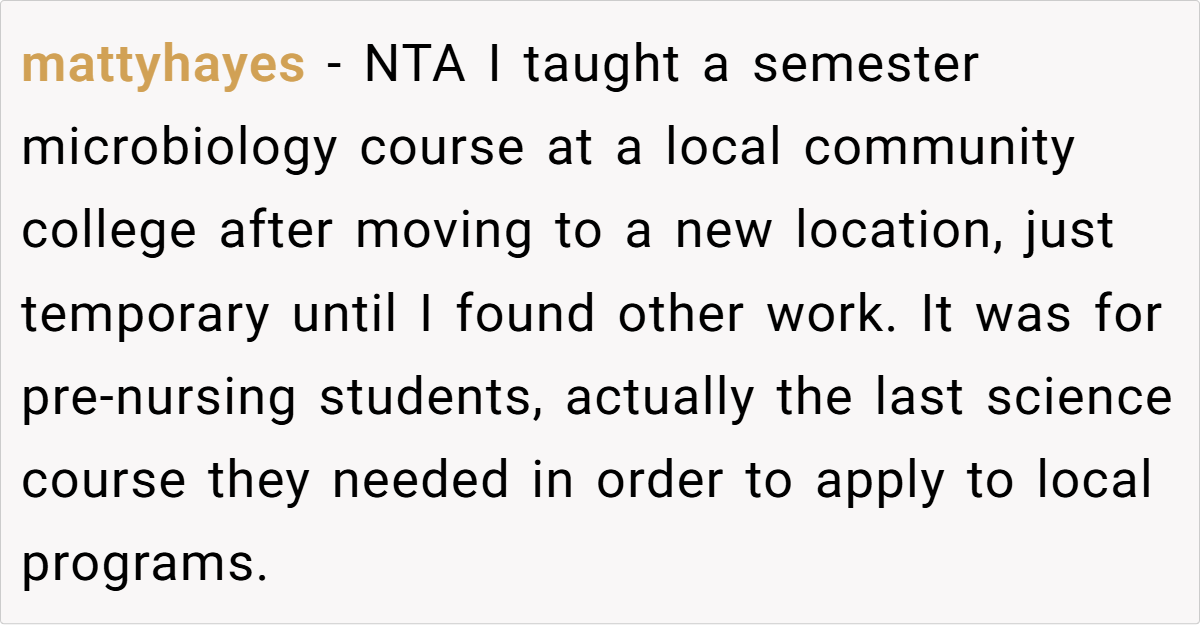
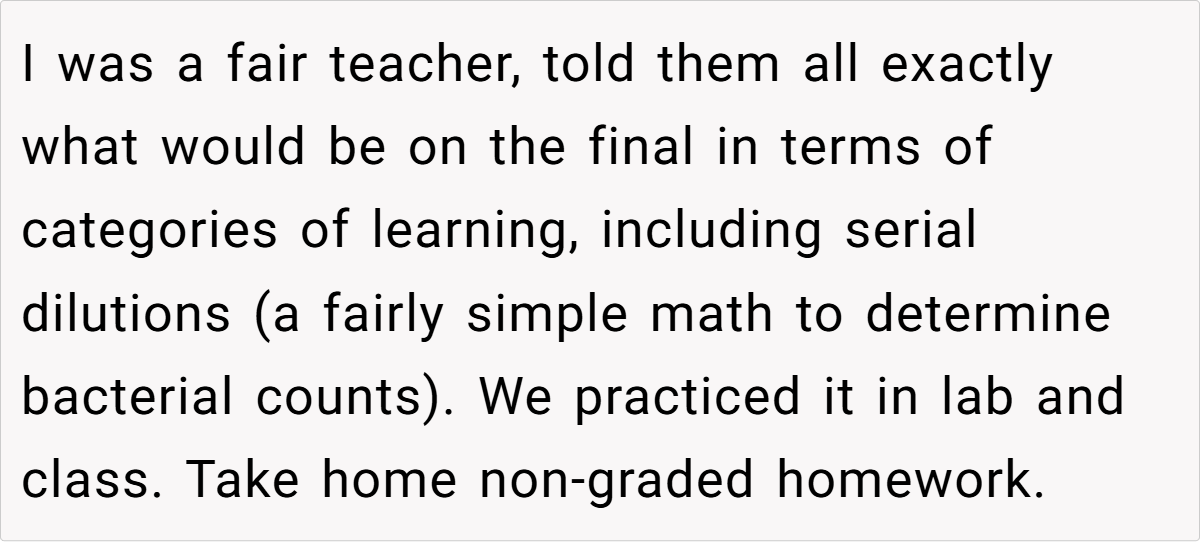
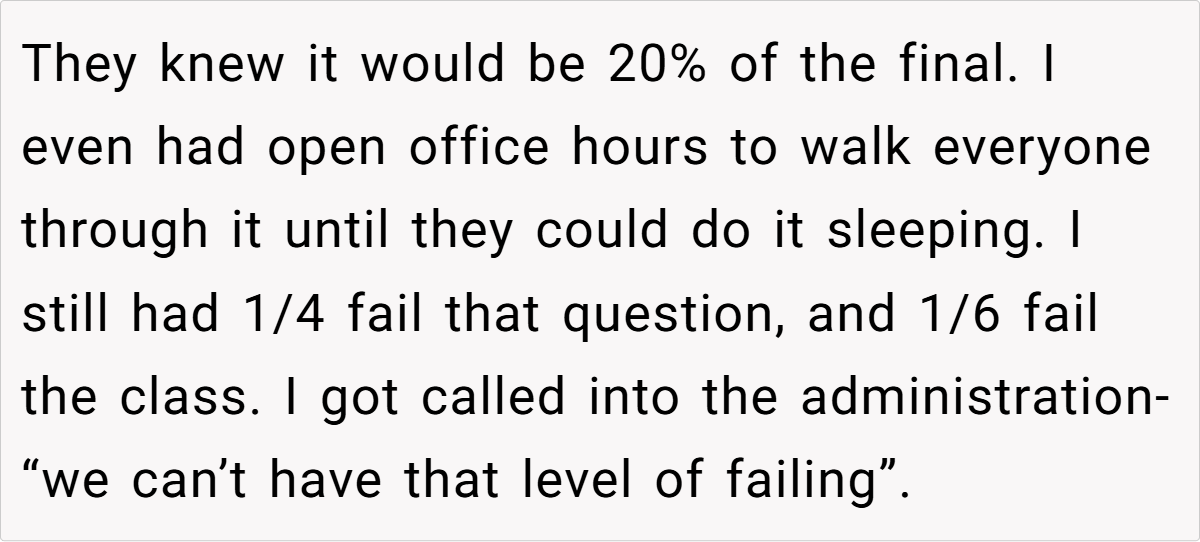


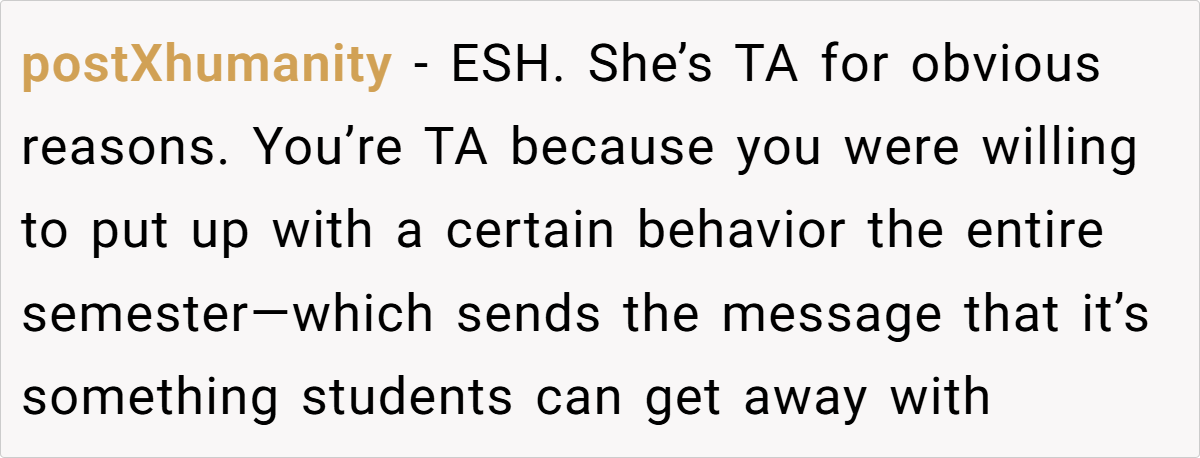

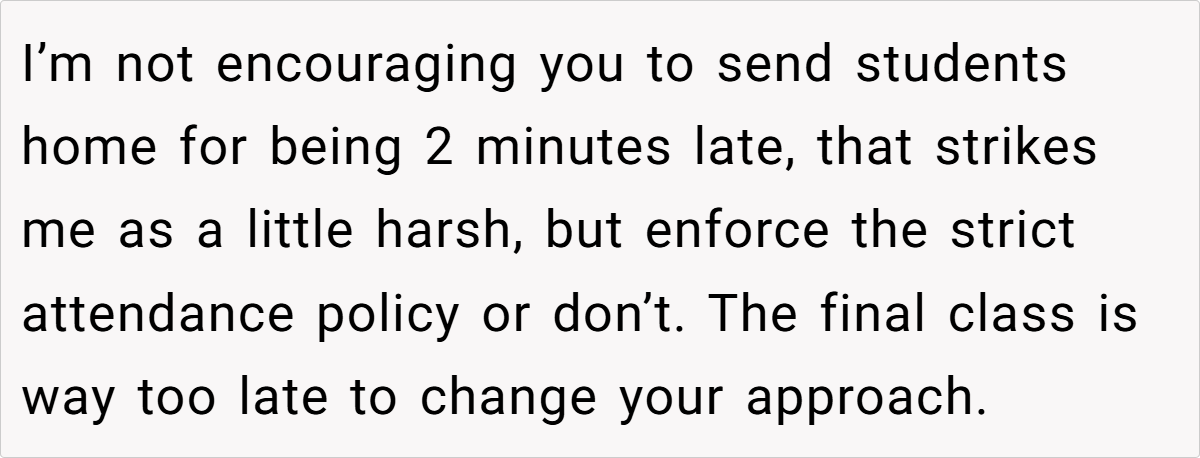
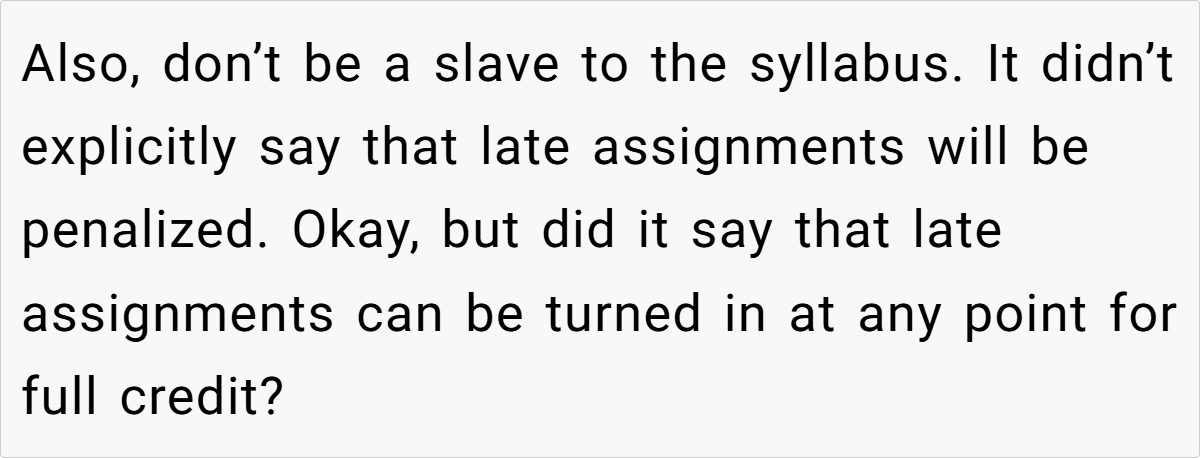




While OP was justified in enforcing rules, consistency matters in education. This wasn’t just about one student failing—it was about setting a standard for professionalism. However, enforcing a harsh penalty only at the last moment may have weakened the impact.
Was OP too strict at the wrong time, or was this an important lesson in accountability? Drop your thoughts below!

